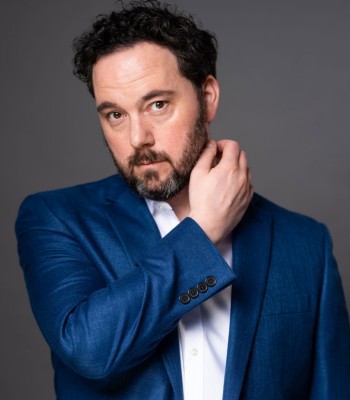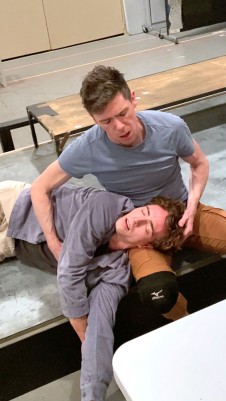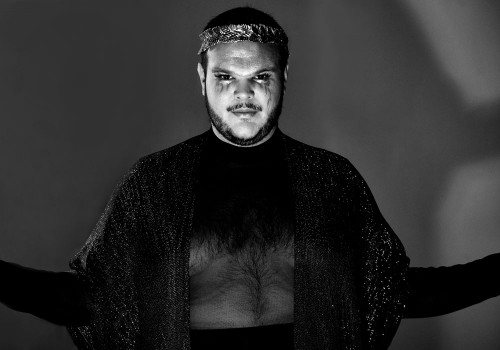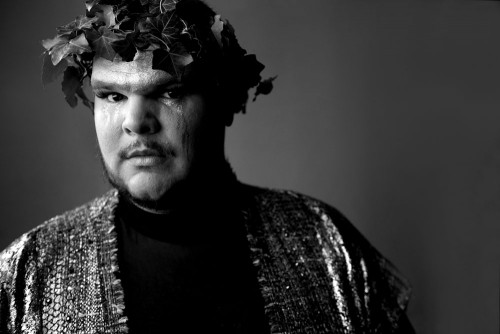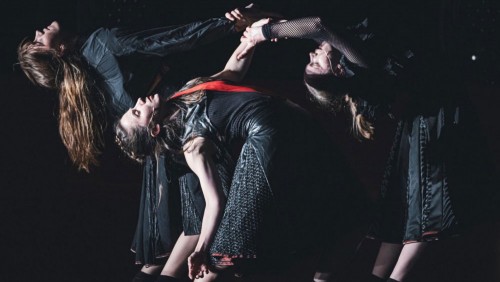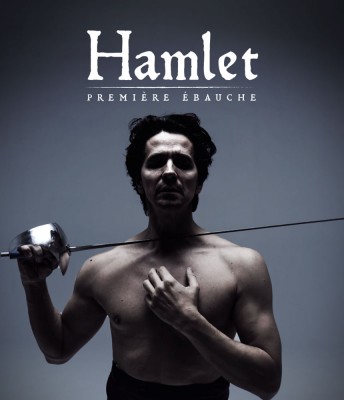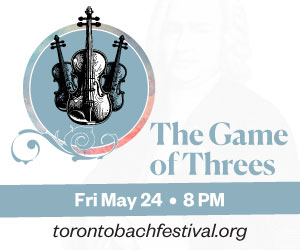 It’s a new year, so cue the cold winds and snow as the lighthearted fare of the holiday season gives way to tougher, darker, fascinatingly rich new works drawn from older sources.
It’s a new year, so cue the cold winds and snow as the lighthearted fare of the holiday season gives way to tougher, darker, fascinatingly rich new works drawn from older sources.
As I write this column, a production I had wanted to see at The Grand Theatre in London (Ontario) The Invisible: Agents of Ungentlemanly Warfare is finishing its run (it closes on Feb 3). Drawn from the little-known history of real women who worked as secret agents during World War II, this wonderfully-named musical from Edmonton’s Catalyst Theatre has been lighting up the stage of the Grand, opening audiences’ eyes to hidden histories that should be much better known, highlighting the role of real women at a pivotal moment in history, and making the case for equality among the sexes.
Coming up in February, March, and early April are a number of other shows developed from historical and classical sources that are also vibrantly new and have important ideas to share. Of course, these shows have yet to open so I can’t speak to detail, but I am looking forward to seeing if they accomplish the ambitious goals that are driving their creative teams.
First up is De Profundis: Oscar Wilde in Jail, a world premiere by some of the talents behind the always dynamic theatrical concert series at Soulpepper. Adapted and directed by Gregory Prest, this new intimate “musical fantasy” aims to delve deeply into the heart, psyche and soul of celebrated playwright and queer icon, Oscar Wilde.
The source material for the show is an unsent, long letter Wilde wrote to his love, Lord Alfred Douglas (“Bosie”), one page a day, between January and March 1897, towards the end of Wilde’s incarceration at Reading Gaol. The pages were collected at the end of each day, and handed over to Wilde on his release from prison. The first part of the letter describes the relationship Wilde had with “Bosie” but the second part goes more deeply into Wilde’s experience in prison and the deepening of his art and spirit through the experience.
With original music and lyrics by the award-winning Mike Ross and Sarah Wilson and movement by Indrit Kasapi, De Profundis uses music, dance and text to bring to life what director Prest calls “the greatest love letter ever written and a seminal queer work,” bringing the audience into this seminal and transformative time in Wilde’s life. Damien Atkins as Wilde is joined by Jonathan Corkal-Astorga and Colton Curtis. Feb 1-18
If you are reading this in one of our digital editions, you can watch a short sequence of De Profundis in rehearsal here.
Following De Profundis’ exploration of one man’s incarceration at the hands of society, the season moves on to the upheaval of society as a whole as instigated by a self-proclaimed non-binary demigod. One of the most radical and most often reinterpreted plays of the classic Greek theatre – Euripides’ The Bacchae – finds itself transformed into the Coal Mine Theatre’s first-ever self-developed world premiere: DION: A Rock Opera.
Created by the Coal Mine’s co-artistic director Ted Dykstra with frequent collaborator Steven Mayoff, the new work is described by director Peter Hinton Davis as “a wild and provocative musical about the limits of reason and the potential for disorder and revenge that lies inside the cry for freedom.” Interpreting the original as “an exploration of false binaries; right vs left, male vs female” - this new version explores how taking the risk of refusal to understand opposing viewpoints and embrace difference can lead to a tragic end.
The story has been updated to a contemporary but “timeless” present where Pentheus, the conservative right-wing leader of a city-state, returns home to learn that all the disenfranchised people in his kingdom have taken to running through the hills in states of ecstasy following the demi-god Dion, the child of Pentheus’ aunt, Semele, who claimed the god Zeus was Dion’s father. Pentheus denies Semele’s account, and Dion wants revenge for this slander of his mother. As more and more of the state’s citizens are drawn to the worship of Dion, Pentheus is tricked into disguising himself as a woman and heading up into the hills to see what is happening for himself, with tragic results.
“It’s amazing that the relevance of the play only seems to increase over time.” says Dykstra, “At this moment we see political discourse more polarized than ever, and assumptions about gender identity are being more forcefully challenged than at any other moment in history.”
Jacob MacInnis stars as Dion, with an exciting array of musical theatre artists rounding out the cast, including Allister MacDonald as Pentheus, Carly Street as his mother Agave, and Sate as Tiresias. Bob Foster (Come from Away) is the music director.
Two more shows in the upcoming season deal with the always-present need to fight injustice and to strive for one’s own true identity.
On March 6 and 7, Sámi choregrapher Elle Some Sara brings her choreographed theatrical concert Vástádus eana – The Answer is Land to Harbourfront as part of the Torque dance series. Inspired by Sámi spirituality, seven female dancers and singers combine polyphonic chants and movements into a story of resistance and healing, drawing the audience into their celebration of the harmony between living creatures and the land, while amplifying the long-suppressed voice of the Sámi people (the indigenous people of northern Scandinavia), and paying tribute to all those who fight injustice.
From April 3 to 7, a world premiere reinterpretation of an English classic of the fight against injustice and for one’s own rightful identity, also set in Scandinavia, comes to the Elgin Theatre in a new wordless version of Hamlet, as seen through the combined creative talents of premier danseur and choreographer Guillaume Côté and veteran playwright, director and designer Robert Lepage.
Joining forces for the first time on a major work since their co-creation of the multi-media ballet Frame by Frame for the National Ballet of Canada, Côté and Lepage are both excited about revisiting Hamlet. Lepage knows the play well, having directed various versions of the story and having created and toured his audacious one-man version Elsinore in 1995. Côté previously danced the role of Hamlet in Kevin O’Day’s version with the National Ballet. Both collaborators are steering the project with Lepage providing the physical design and direction and Côté choreographing for the nine dancers as well as starring as Hamlet. Underpinning the whole is an original score by John Gzowski that is essentially contemporary in style, but that includes the wonderfully Shakespearean instrumental sound of the hurdy-gurdy. I am curious to see how provocative this production will be.
All in all, this is an exciting season for works that engage with some of the darkest trends in society, but that also provide hope – by showcasing the heart and valour of those who fight to make society better, and by affirming the power of art, through discourse, to make us open our minds to new possibilities.
Jennifer Parr is a Toronto-based director, dramaturge, fight director and acting coach, brought up from a young age on a rich mix of musicals, Shakespeare and new Canadian plays.


